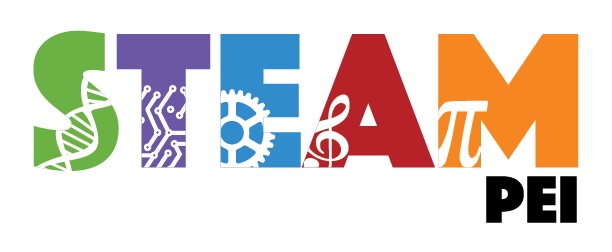FatBinaryBuffer
FatBinaryBuffer is a lightweight library for reading/writing binary string.
Requires
PHP 7.0 or higher
Installation
composer require tianhe1986/fatbinarybuffer
and then in your code
require_once __DIR__ . '/vendor/autoload.php';
use FatBinaryBufferFatBinaryBuffer;
Support
It supports char/unsigned char, short/unsigned short, int32/uint32, int64/uint64, string, string with length.
Do not support float and double!
Usage
big endian vs little endian
$binaryBufferBE = new FatBinaryBuffer(true); //big endian
$binaryBufferLE = new FatBinaryBuffer(false); //little endian
buffer opration
$binaryBuffer = new FatBinaryBuffer();
//set buffer, would calculate length and offset automaticly
$buffer = base64_decode('XXXXXX');
$binaryBuffer->setBuffer($buffer);
//get buffer
$buffer = $binaryBuffer->getBuffer();
// clear buffer
$binaryBuffer->clear();
// set offset, and then continue to read/write from this position, take byte as unit
$binaryBuffer->setOffset(4); // read/write from the 4th byte
// rewind, just set offset 0
$binaryBuffer->rewind();
writing data
$binaryBuffer = new FatBinaryBuffer(true);
// char and unsigned char, must pass a number, not a char, or you can use `ord` function for transformation
$binaryBuffer->writeChar(100);
$binaryBuffer->writeUChar(225);
// short and unsigned short
$binaryBuffer->writeShort(-1234);
$binaryBuffer->writeUShort(1236);
// int32 and uint32
$binaryBuffer->writeInt32(-999);
$binaryBuffer->writeUInt32(1098);
// int64 and uint64
$binaryBuffer->writeInt64(-98765);
$binaryBuffer->writeUInt64(888);
// string, write its length as a uint32 value first, and then the real string
$binaryBuffer->writeString("张学友!张学友!我们爱你!");
// string with given length, padding with NUL
$binaryBuffer->writeStringByLength("Hello world", 3); // would get 'Hel' when reading
reading data
$newBuffer = new FatBinaryBuffer();
$newBuffer->setBuffer($binaryBuffer->getBuffer());
// char and unsigned char
$char = $newBuffer->readChar();
$uchar = $newBuffer->readUChar();
// short and unsigned short
$short = $newBuffer->readShort();
$ushort = $newBuffer->readUShort();
// int32 and uint32
$a = $newBuffer->readInt32();
$b = $newBuffer->readUInt32();
// int64 and uint64
$a = $newBuffer->readInt64();
$b = $newBuffer->readUInt64();
// string, read its length first, and then the real string
$str = $newBuffer->readString();
// read string with given length, would remove NUL at the end of the string
$str = $newBuffer->readStringByLength(3);
writing/reading with endian (version >= 1.1)
From 1.1, short/ushort/int32/uint32/int64/uint64 cound handle with giving endian.
//whatever initial endian
$binaryBuffer = new FatBinaryBuffer((mt_rand(1, 10) % 2) === 0);
//write with big endian
$binaryBuffer->writeShort(-1234, true);
//write with little endian
$binaryBuffer->writeUShort(1236, false);
//read with big endian
$binaryBuffer->readInt32(true);
//read with little endian
$binaryBuffer->readUInt64(false);
combine with websocket server
Taking Workerman for exmaple.
require_once __DIR__ . '/vendor/autoload.php';
use WorkermanWorker;
use WorkermanProtocolsWebsocket;
use FatBinaryBufferFatBinaryBuffer;
$ws_worker = new Worker("websocket://0.0.0.0:13001");
// 4 processes
$ws_worker->count = 4;
$ws_worker->onConnect = function($connection)
{
$connection->onWebSocketConnect = function($connection , $http_header)
{
$connection->websocketType = Websocket::BINARY_TYPE_ARRAYBUFFER;
};
};
$ws_worker->onMessage = function($connection, $data)
{
$socketData = new FatBinaryBuffer(false);
$socketData->setBuffer($data);
$opcode = $socketData->readUInt32();
echo $opcode."n";
echo $socketData->readUInt32()."n";
echo $socketData->readUInt32()."n";
if ($opcode === 21102) {
echo $socketData->readUInt32()."n";
$newData = new FatBinaryBuffer(false);
$newData->writeUInt32(21103);
$newData->writeUInt32(16);
$newData->writeUInt32(11);
$newData->writeUInt32(777);
$connection->send($newData->getBuffer());
} else if ($opcode === 21104) {
$len = $socketData->readUShort();
echo "string len ".$len."n";
echo $socketData->readStringByLength($len)."n";
echo $socketData->readChar()."n";
echo $socketData->readUShort()."n";
echo $socketData->readInt32()."n";
echo $socketData->readStringByLength(5)."n";
}
};
Worker::runAll();
Using Layabox as a typescript client for testing. It works fine.
import Socket = Laya.Socket;
import Byte = Laya.Byte;
class TestSocket {
private socket: Socket;
private output: Byte;
private byte: Byte;
private headerLength:number = 12;
constructor() {
this.byte = new Byte();
this.byte.endian = Byte.LITTLE_ENDIAN;
this.connect();
}
private connect(): void {
this.socket = new Socket();
this.socket.connectByUrl("ws://localhost:13001");
this.output = this.socket.output;
this.socket.on(Laya.Event.OPEN, this, this.onSocketOpen);
this.socket.on(Laya.Event.CLOSE, this, this.onSocketClose);
this.socket.on(Laya.Event.MESSAGE, this, this.onMessageReveived);
this.socket.on(Laya.Event.ERROR, this, this.onConnectError);
}
private onSocketOpen(): void {
console.log("Connected");
this.byte.clear();
this.byte.writeUint32(21102);
this.byte.writeUint32(16);
this.byte.writeUint32(657);
this.byte.writeUint32(10);
this.socket.send(this.byte.buffer);
this.byte.clear();
}
private onSocketClose(): void {
console.log("Socket closed");
}
private onMessageReveived(message: any): void {
console.log("Message from server:");
if (typeof message == "string") {
console.log(message);
}
else if (message instanceof ArrayBuffer) {
let byte = new Byte(message);
let messageId = byte.getUint32();
let messageLength = byte.getUint32() - this.headerLength;
let userId = byte.getUint32();
console.log(messageId, messageLength, userId);
this.handleMessage(byte, messageId);
}
this.socket.input.clear();
}
private onConnectError(e: Event): void {
console.log("error");
}
protected handleMessage(byte:Byte, messageId:number):void
{
if (messageId === 21103) {
let serverTime:number = byte.getUint32();
console.log("recieve heart beat " + serverTime);
this.byte.clear();
let str = "You are shock!我爱黎明!!!";
let newByte = new Byte();
newByte.writeUTFString(str);
newByte.writeByte(111);
newByte.writeUint16(65500);
newByte.writeInt32(-70);
newByte.writeUTFBytes("topod");
let len = this.headerLength + newByte.length;
this.byte.writeUint32(21104);
this.byte.writeUint32(len);
this.byte.writeUint32(657);
this.byte.writeArrayBuffer(newByte.buffer);
this.socket.send(this.byte.buffer);
this.byte.clear();
}
}
}
版权声明:
1、该文章(资料)来源于互联网公开信息,我方只是对该内容做点评,所分享的下载地址为原作者公开地址。2、网站不提供资料下载,如需下载请到原作者页面进行下载。
3、本站所有内容均由合作方或网友上传,本站不对文档的完整性、权威性及其观点立场正确性做任何保证或承诺!文档内容仅供研究参考学习用!
4、如文档内容存在违规,或者侵犯商业秘密、侵犯著作权等,请点击“违规举报”。


